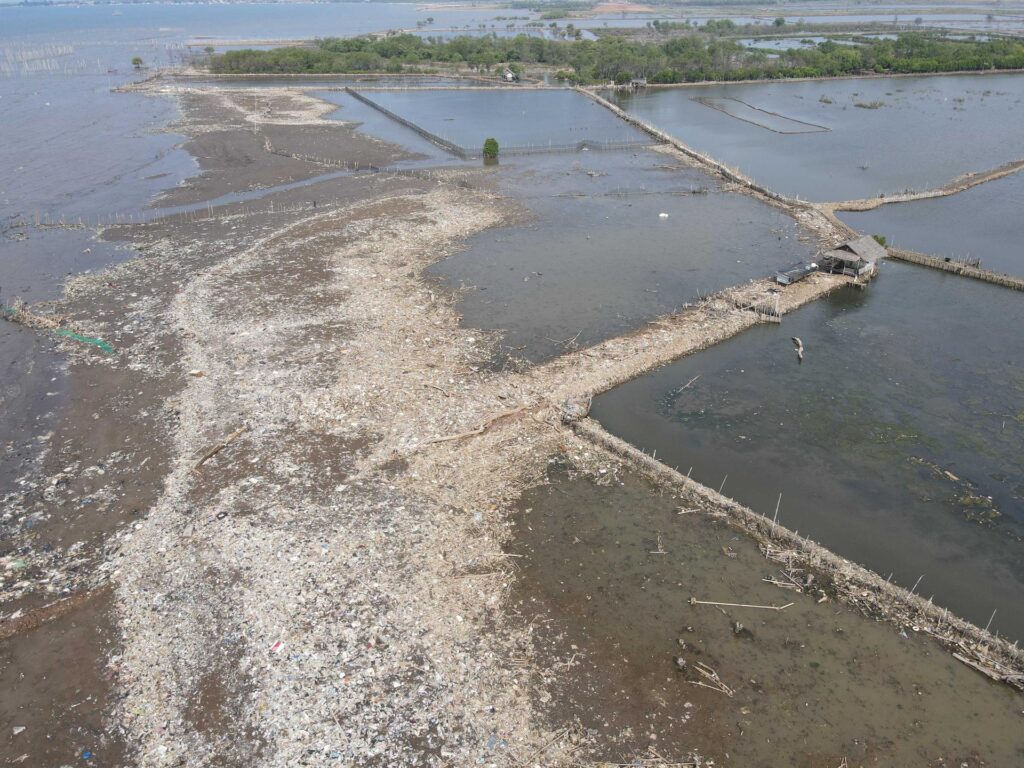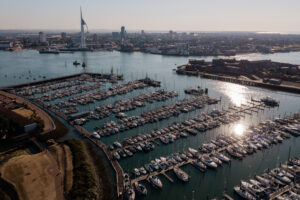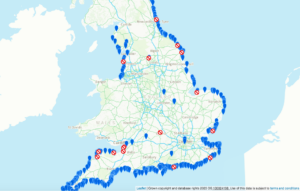Ocean Cleanup set to tackle tonnes of plastic in Indonesia river

International non-profit project, Ocean Cleanup, has signed a new agreement with government departments to remove tonnes of plastic from the Cisadane River in Indonesia. The company is set to deploy its new Interceptor Original before the end of 2023.
The agreement was signed by the Ministry of Public Works and Housing, the Government of Tangerang Regency, the Coordinating Ministry for Maritime and Investment Affairs, and the Dutch Government.
Interceptor 020 will contribute to tackling the estimated 1,000 tons of plastic emitted via the Cisadane into the Java Sea each year. It will be the second Interceptor deployed in Indonesia after Interceptor 001 in the Cengkareng Drain, Jakarta, in 2018.
“It has been a special personal honour for me to sign this agreement for our twentieth Interceptor project in my homeland,” says Stacey Santoso, chief financial officer of Ocean Cleanup. “With the support of both the Indonesian and the Dutch governments and our local operating partners, I am happy to see the Ocean Cleanup making another step towards contributing to Indonesia’s mission to reducing marine plastic pollution.
“There are still several dozen more target rivers in Indonesia, and I hope we can follow up quickly by announcing even more Interceptor projects in this beautiful country.”
In July 2022, Ocean Cleanup said it had officially removed more than 100,000kg of plastic from the Great Pacific Garbage Patch (GPGP) and in June the organisation released shocking footage of a tsunami of plastic litter which it was trying to contain prior to reaching the Caribbean. More recently, it received a $25m gift from Joe Gebbia, co-founder of Airbnb and Samara the chairman of Airbnb.org. The organisation says it will use these funds to continue and expand its operations across oceans, rivers, recycling, and scientific research – and, in particular, to support the launch of System 03, the latest iteration of its ocean cleaning system, in the Great Pacific Garbage Patch later this year.
The Interceptor Original is 100 per cent solar powered and capable of autonomous plastic extraction. It extracts plastic flowing with the river and deposits it into six dumpsters on a floating barge inside the system. Once filled up, local operators empty the dumpsters and send the plastic for on-shore processing.
Interceptor Originals have been deployed in Indonesia, Malaysia, Vietnam, Dominican Republic, and the United States and have cleared over two million kilograms of rubbish from the world’s oceans.
The deployment also aims to aid Indonesia in its goal of reducing marine plastic debris by 70 per cent in 2025.
The deployment of Interceptor 020 is part of the Global Implementation Partnership with the Coca-Cola Company. The company has also received financial support from True Ventures and ThatGameCompany.
However, as reported in MIN in September 2022, the Citizen Science Brand Audit revealed that Coca-Cola is one of the world’s top three polluters (alongside PepsiCo and McDonalds) who between them are responsible for 38 per cent of all branded pollution found. 2022 was the third year running that Coca-Cola had taken the ‘top’ spot in the audit.
Watch Ocean Cleanup test its Interceptor Trashfence in Guatemala’s Rio Motagua Basin (June 2022).










